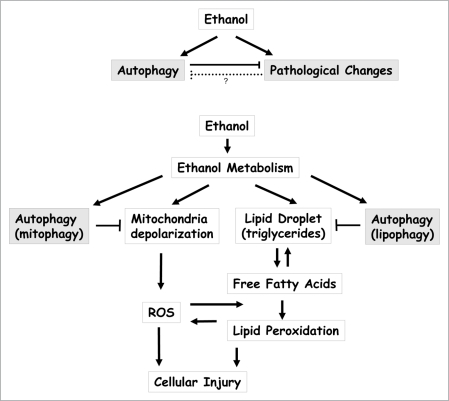Figure 1.
Autophagy mitigates ethanol-induced liver pathogenesis. (A) Acute treatment of ethanol triggers a positive autophagy flux, which would help to protect against ethanol-induced pathologenesis. Inhibition of autophagy leads to greater liver injury and hepatocyte apoptosis. The long-term effect of chronic use of ethanol on autophagy is less clear, but ethanol may induce pathological changes that can compromise the ability of cells to launch or to execute autophagic function, although direct evidence is still lacking. (B) Two major pathological effects of ethanol in hepatocytes are mitochondria depolarization and steatosis, which can form a vicious cycle in promoting ROS generation and lipid peroxidation, culminating in cell death. By selectively removing depolarized damaged mitochondria and lipid droplets, autophagy can effectively arrest this disease process, thus protecting hepatocytes and reducing liver injury.

